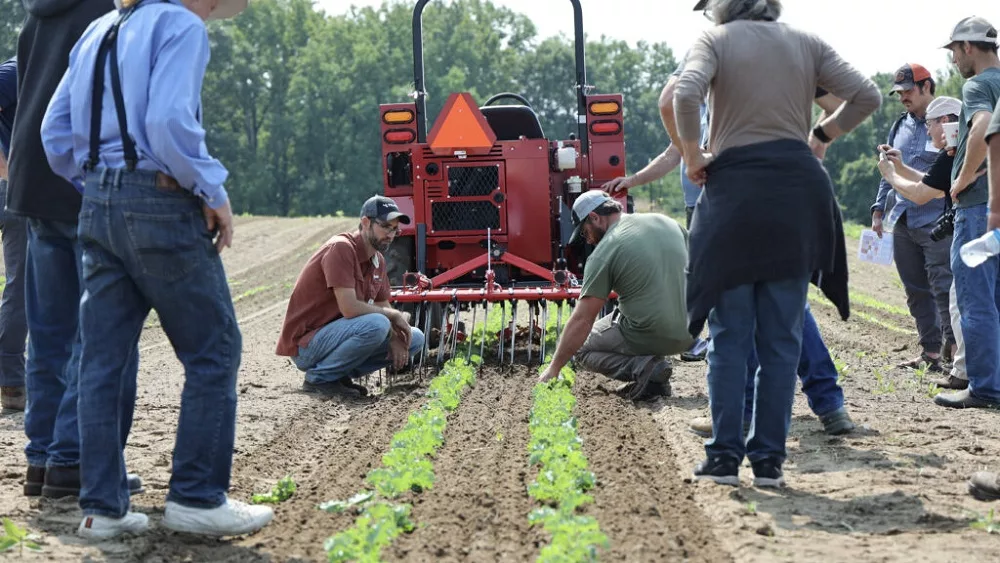
With Rep. Kevin McCarthy (R-CA-20) ousted as Speaker of the House and U.S. representatives on recess until Tuesday, the chaos on Capitol Hill has temporarily impacted the development of the next farm bill.
“This moment—let’s just say this week in time—it is not helping the farm bill and moving it along at all,” says Ted McKinney, CEO of the National Association of State Departments of Agriculture (NASDA). McKinney is also originally from Tipton County, Indiana and previously served as USDA Under Secretary for Trade and Foreign Agricultural Affairs during the Trump administration.
“We have forces—certainly there are forces against it coming along yet this year or maybe even pushing it off a little bit into next year. Those forces are there. But you have got to remember that there are also forces in place to getting it done.”
McKinney says that Sen. Debbie Stabenow (D-MI), who is Chair of the Senate Ag Committee, is retiring when her term ends at the end of next year and that she will likely make the next farm bill her priority as an endcap to her legacy as a legislator.
He says farm bill discussions should quickly pick back up in the House once a new Speaker is in place.
“The House Ag Chair, Rep. Glenn G.T. Thompson (R-PA-17) and even former Speaker McCarthy have all said this is the one major bill that they think they have to get done,” says McKinney. “There has been a lot of groundwork laid by both parties in both the Senate and the House, so I’m not ready to fall down and put my hands to my head and cry in despair. I think that’s where maturity and level heads need to prevail.”
Overall, McKinney says he’s optimistic that members of Congress will experience a shift in their attitudes and put the needs of America’s growers, producers, and ag industry professionals before their own political ideology.
“I’m probably the minority on this, but lots of times after very dark points in time—and I would say that removing the House Speakership is a pretty dark point—after those points in time, you see a rebound because there’s a quick and immediate recognition that the Congress has to the demonstrate to their taxpayers and their electorate that they can care, they do care, and they have to get something done. Maybe, just maybe, the farm bill can be part of that,” says McKinney.
Even though the 2018 Farm Bill expired on Saturday, Sept. 30 with the end of the fiscal year, the temporary spending bill that passed to avoid a shutdown of the federal government extends funding through Friday, Nov. 17 at the same levels as those that were set in the previous farm bill.





